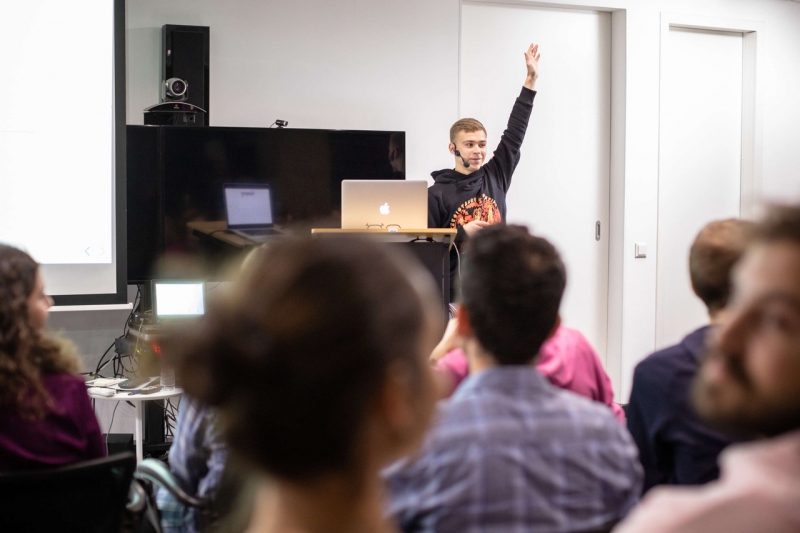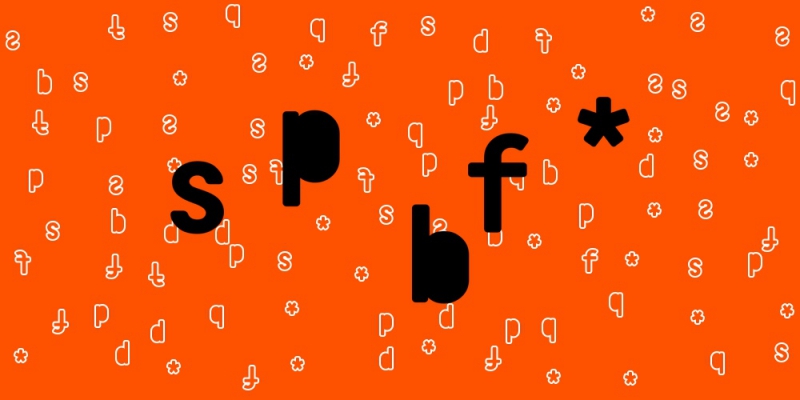Guide on IT meetups in St. Petersburg. Part 2: Softcore and Hardcore
Master's student from the Faculty of Information Security and Computer Technologies at ITMO University, Alice Koroshavina wrote a blog for ITMO news about the best IT events in St. Petersburg. This is a continuation of her previous blog.

Ecosystem of communities around Python
Pythonistas seem to unconsciously follow the principle "Borrow ideas from elsewhere whenever it makes sense". It is mentioned by Guido van Rossum as one of the rules of Python's design philosophy. PiterPy Meetup organizers events for people with wide area of thought. Monthly there are several events with congenial atmosphere and fun after party:
- Traditional meetups once a month with the focus on Python and the world of software development (usually there are two softcore talks and a couple of lightning stories)
- Hardcore meetups once in 3 months about functional programming features in Python, optional static typing in the last versions of Python, CPython and PyPy, GIL, asynchronous Python for web development
- Meetups in English once in 3 months
- Pybreakfasts once in 2 weeks with tech talks, offtop discussions, jokes and coffee
- Drinkups in a bar once a month for networking and fun
- Sometimes PiterPy Meetup also organizes hackathons and drinkathons, participates in open-source sprints, makes interactive stands, workshops and panel discussions on IT festivals
Participants of PiterPy Meetup like traditions by pattern "every
Guido van Rossum expressed his nostalgy in Twitter. Paul had worn the same T-shirt at the meetups in the USA in the 1990s (though organizers of PiterPy Meetup always get speakers T-shirts with a logo of the community). Another time, a product manager from American Amazon came to the drinkathon as an ordinary attendee. He was inspired by the atmosphere so much that continued attending PiterPy Meetup events for the whole August. Ever since that time, PiterPy Meetup has begun to organize regular meetups in English. Then the initiative was taken up by other IT communities: Frontend Spb and PyLadies. In addition, there is an European conference under the brand of PiterPy in English with invited foreign speakers.
The communities of pythonistas in St. Petersburg are like the ecosystem of libraries and frameworks in Python for different needs. There are events for women who code: PyLadies meetups and breakfasts, Django Girls workshops. They are organized by other people just for ladies. Men were not allowed to come before. Now a man visit the event as a "+1 person" to a woman (this rule is for gender balance). However, men who identify themselves as women cannot attend these feminist events. If you want, you can find more details in an article of "Bumaga". Recently Lynn Root, one of the founders of the PyLadies global initiative, has come to the meetup from New York.
There is also Spb Python community which reminds of Python 2.x. It has been created earlier. It is not developed now and can be unsafe (the participants do not accept Coc but even have a special chat Rude Python for "not unicode" words). The fact that many speakers and attendees do not distinguish meetups of PiterPy and Spb Python can be called "backward compatibility" between communities. Almost all organizers of Python communities are web developers (backend, fullstack). Maybe that is why the announcements of events and other information are gathered on websites (the same idea is implemented also for communities of frontenders).
Frontend communities
Unlike other developers, frontenders need meetups because they have to track trends more often than conferences are organized. For others, meetups of Piter JS and Frontend Spb are worth visiting at least for learning best practices of public speaking and ideas of spectacular presentations. Community primarily consist of creative young people with a desire to make beautiful things. Sometimes speakers talk in the manner of stand-up comics.

For example, once a speaker began his speech with the phrase, "I am a CSS coder, I do not know JavaScript." After a short explanation how to solve one problem entirely on CSS, he stepped back and disappeared into the dark. Then he has come back to the scene in black sunglasses, "I am a JavaScript programmer and I will show you how to solve this problem in JavaScript". Most speeches dedicated to web development (HTML, CSS, JavaScript frameworks, UI/UX) but some are about architectural styles and patterns, cross-platform mobile app development, optimization of the bundle, building compilers on LLVM, importing Keras models into TensorFlow.js (pre-trained models written in Python or JavaScript frameworks for GPU-powered, in-browser, client-side computation). Besides traditional meetups, Frontend Spb organizes meetings in English and breakfasts, records the podcast. The community has projects on GitHub. The process of organizing the meetings is open: the guides for organizers are public and everyone is encouraged to make a contribution. PiterJS makes meetups and breakfasts, participate in big IT festivals (for example, the activity "Code in the Dark" made their stand the most popular at the last TechTrain). It is planned to make public the entire process of organizing PiterPy JS (though now only recommendations for speakers are published). Active participants of PiterJS are so charismatic that other IT-communities invite them as speakers on their not-frontend meetups.
